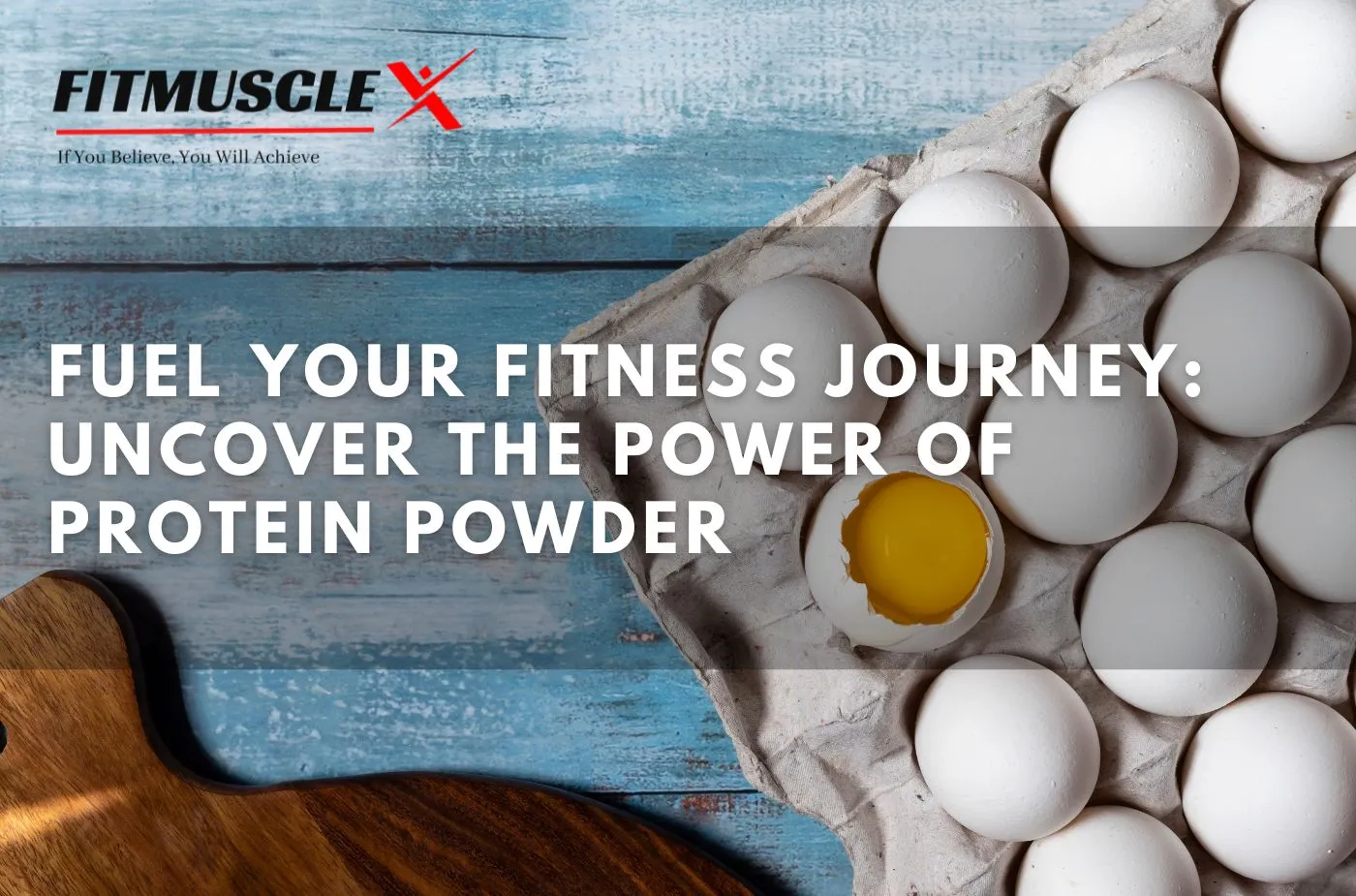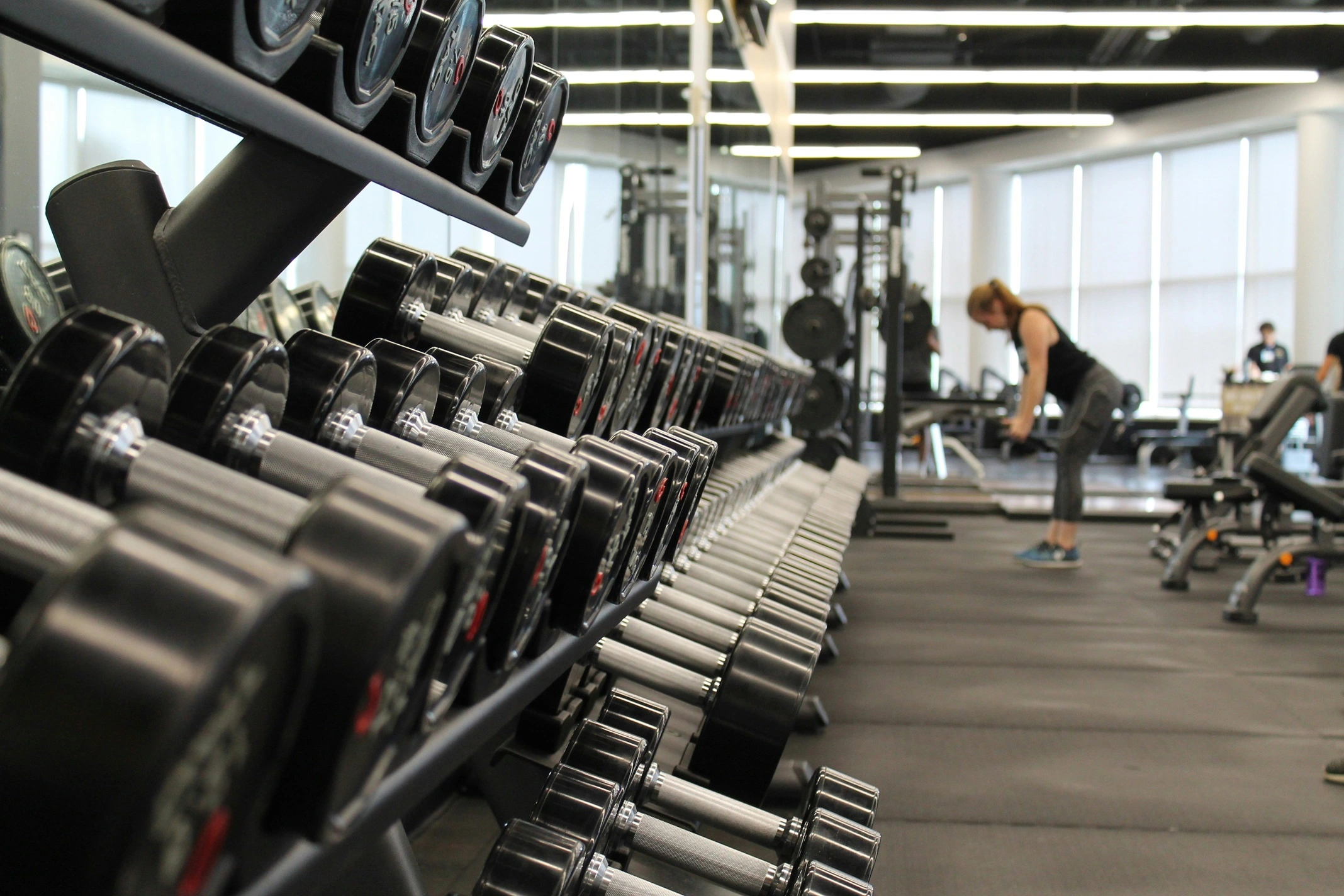Protein Powder: The Classification, Purposes and Advantages
Welcome to FitMuscleX. com or find other categories related to diet and exercise at a one-stop destination. It is time to explore the protein powder further with this comprehensive guide focusing on the various types, uses, and benefits of this supplement. The information available on the ability of protein powder to be of importance in fitness and health, irrespective of the level of the individuals involved in the fitness activities or the stage they are in their fitness regime.
What is Protein Powder?
The nutritional supplement is known as protein powder Therefore, There is a more concentrated form of protein that is derived, from either animal or plant. Some of the health benefits associated with its consumption include; It has been known to enhance overall muscular definitions, build muscles, and help in tissue reconstruction. There are so many types of these protein powders and they are popular among bodybuilders, athletes, and other sports enthusiasts majoring on the efficiency of these products and their convenience.
Why is Protein Important?
Protein is one of the major nutrients, essential for hormones and enzyme manufacture, the development of tissues, and overall body health. As you may know, protein is the major building material for muscles, making it a big concern for any person who is involved in a regular workout session.
Types of Protein Powder
Perhaps the most common form of protein powder is whey protein that has unique characteristics as well as benefits. It also be made easier if you know the differences of some of the solutions that you may consider to be applied to your solution.
1. Whey Protein
Source: In terms of where it is produced, whey protein is generated in the process of making cheese from milk.
Types:
Whey Protein Concentrate (WPC): It is reported to contain approximately 70-80% protein, a small amount of lactose, and a bit of digestible fat.
Whey Protein Isolate (WPI): This Danish-developed cheese has been through highly processing to minimize the fat and lactose to have over 90% protein.
Whey Protein Hydrolysate (WPH): Pre-digested and partially hydrolyzed for a quicker subsequent intake.
Benefits:
Rapid digestion and absorption.
Loaded with branched-chain amino acids (BCAA), particularly leucine that is critical for muscle protein synthesis.
It helps in the rebuilding and reconstructing of muscles too.
Best For: After workout meals, bodybuilders, weightlifters, personal trainers, and others involved in building lean muscles and anyone who wants a good quality, fast-acting protein supplement.
2. Casein Protein
Source: There is no doubt that casein is one of the most important structures in milk; it contains approximately 80% of milk proteins.
Types:
Micellar Casein: There are three types based on how they digest – and this type is the most popular one which digests slowly.
Hydrolyzed Casein: This gel formulation is pre-digested to enhance quick and easier absorption by the body.
Benefits:
It gives a slow time release of amino acids to muscles and hence offers prolonged supplements to muscles.
These are particularly good to use at night to help supply nutrients to the muscles as the body is at rest.
Best For: Protein released over a longer period, helps to build muscles and is used at night.
3. Soy Protein
Source: Derived from soybeans.
Benefits:
Has all the essential amino acids that are required in the body for metabolism and proper functioning.
High in glutamine and arginine to help nourish the immune system and rebuild Nitric Oxide.
Rich in phytoestrogens, having healthy aspects for the heart; may reduce bad cholesterol.
Best When Used by Vegetarians/Vegans If you or your child is vegetarian/vegan or has dairy allergies or lactose intolerance.
4. Pea Protein
Source: The falafel ingredients For the falafel consist of yellow split peas that are extracted from it.
Benefits:
Hypoallergenic and easily digestible.
As for the abundance of ingredients, it contains a superior amount of BCAAs and arginine.
It is also involved in the promotion of muscle growth and recovery among athletes.
Recommendations for anyone who is avoiding dairy products or soy and / or gluten intolerance and / or vegan/ vegetarian.
5. Hemp Protein
Source: It is made from ground hemp seed, it is packed with nutrition, healthy fats D and contains a valuable source of energy.
Benefits:
Omega-3 and omega-6 fatty acids are present, rather abundant in the food item.
Among its benefits, it has dietary fiber and essential amino acids.
Heart health and proper digestion are two major benefits of avocados to the body.
Best For: The intended audience will be people who want a plant-based protein, but also want a healthy protein in terms of macronutrients.
6. Brown Rice Protein
Source: A food derived from Brown rice.
Benefits:
Hypoallergenic and easy for digestion are the key messages in a way of wording of this sandwich.
Enhances other plant protein sources to compensate for the lack of balance of amino acids in their diet.
Strengthens new tissues, assist in the rebuilding of muscles, and promotes muscle gain.
Best For: It is designed to appeal to the clientele with allegories or sensitivities to dairy products, nuts and grains or any person interested in getting lean meats that is a plant base.
Uses of Protein Powder
Protein powder is a very versatile product due to which, it can be incorporated in different ways so as to better its performance and application to support the goals of weight training. Here are some common uses:Here are some common uses:
1. Post-Workout Recovery
Protein powders especially when consumed after a workout helps in repairing muscles that are broken down during exercises. But one type of protein that is very effective is whey, primarily because it has a high absorption rate.
2. Meal Replacement
It is evident that protein shakes can be effectively used as substitution meals for people accompanying a low-calorie diet or those who don’t have time for meals. To sum up, adding fruits, vegetables, and healthy fat make meals nourishing and quite enjoyable at the same time.
3. Muscle Building
Young et al. pointed out that augmenting daily protein consumption is crucial for skeletal muscle hypertrophy. Protein powder can be incorporated into the diet and assists one in attaining the every day protein intake more so where you require more protein as a result of your training schedule.
4. Weight Management
Protein, which is also referred to as the building block, helps in checking hunger levels and assists in weight loss since you will not have the desire to eat a lot of food especially sweet items. Eating protein powder in between meals or as part of a meal plans can go a long way in harnessing appetites and reversing the usual direction of weight loss.
5. Dietary Supplement
For people who have specific dietary requirements or who need to avoid certain meals, they can use protein powder supplements to meet their dietary requirements. This especially comes in handy for vegetarians or vegans, individuals who have food allergies or intolerance levels.
Benefits of Protein Powder
1. Convenience
Using protein powder for your protein supplements, it is possible to increase the amount of protein in your diet easily and without spending a lot of time cooking big meals. It is especially useful for the people who have rather tight schedules in their everyday life.
2. Muscle Growth and Recovery
Muscle tissue requires essential amino acids which must be provided by protein powder in the body for growth and to support repair. For anyone in sports, involved in high-intensity activities, and people who do resistance training, this is very important.
3. Weight Management
Protein diet is useful for losing weight as it elicits appetite suppression and helps in mobilization of fats without loss of muscles mass, protein powders can be easily sold.
4. Weight Management
It also helps in decreasing hunger and therefore assist in the control of weight mainly due to the property that protein has of making one feel full. Protein powders as a snack or incorporated in meals can be useful in managing hunger and achieving ones further weight loss objectives.
5. Dietary Supplement
Thus, those who have some health needs concerning their diets or they limited in some products, using a protein powder is beneficial. This is especially important for those who adopt vegetarian or vegan diets or have food sensitivities such as allergies or intolerance.
Benefits of Protein Powder
1. Convenience
Since you can make meals with protein powder in a shorter time than what it takes to cook other food, you can easily supplement your meals with protein uptake. Those with busy schedules would find this particularly beneficial for their uses.
2. Muscle Growth and Recovery
The body requires Protein powder to deliver the utile amino acid in muscle building and tissue repair assemblage. This is necessary especially for people who are into athletics and those who do resistance trainings on daily basis.
3. Weight Management
High protein diet regime are beneficial for slimming as they satiating and promotes fat loss while preserving lean muscle mass.High protein diet plan can be useful tool in slimming program.
4. Nutritional Support
Protein powder will in one way or the other supplement the required protein intake of the body and this may be more common due to increased body activity or age or health complications.
5. Versatility
Currently, there are many different types of protein powders and flavors, and because they all can be used in smoothies, shakes, in cooking or as an ingredient for various baked products and dishes, there are innumerable possibilities to include them in a diet.
To sum it up, knowing all the guidelines to choose a protein powder will help you get the right product for your needs and goals.
When deciding on what protein powder is best suited for you, you should bear in mind several factors such as the kind of diet you intend to take, your exercise regime and whether you are allergic to a certain product or not. You can choose wisely by using the following advice:You can choose wisely by using the following advice:
- Determine Your Goals: There are different reasons as to why one may need to consume protein powder, some may need it for bodybuilding while others may need it for weight loss and there are even those who need to supplement their diets as a result of their high protein diets.
- Consider Dietary Restrictions: If you are allergic to something, or if you adhere to a particular type of diet (for instance, vegan/vegetarian or gluten-free) opt for a protein powder which is free from those products that you are allergic to or are not allowed to consume under any circumstances.
- Check the Ingredients: Note that protein powders will have different labels depending on the number of ingredients used in preparing them: when selecting a protein powder, it’s advisable to opt for protein powder with lean macronutrients and avoid protein powder that will have added sugars, artificial flavors, and other fillers.
- Evaluate Protein Content: Another thing to consider when deciding between a protein powder is the protein content per serving so it can be easier to select a powder that gives a sufficient amount of protein necessary for an individual.
- Test for Digestibility: Protein powders in general may lead to certain side effects such as stomach discomfort. It is recommended to start with a small serving in order to observe how it will affect your body most positively and preferably choose one that will not cause digestive upsets.
- Consider the Cost: Protein powder is of different types and the pricing also differs according to the taste of it. Very often, paying more for a particular product means getting more benefits but there is always a choice if a person is willing to look for an affordable yet good quality item.
Protein is an essential macronutrient that is required for the growth, repair, and maintenance of body tissues Professionally, the recommended protein intake of an individual depends on the person’s gender, activity level, and age.
Incorporating protein powder into your diet is simple and can be done in various ways:
- Shakes and Smoothies: Suspended in water, milk, or any non-dairy milk of your choice or soy milk protein powder. Include banana, any green vegetables, and nuts for a high nutritive value fistful of liquid food.
- Baked Goods: Include protein powder in the recipes for pancakes, muffins, and cookies to improved the protein level in the products.
- Oatmeal and Yogurt: It can be easily mixed with oatmeal or yogurt in the morning and offer a protein–enriched breakfast.
- Savory Dishes: Add protein: Instead of using flavored proteins and wanting to add it to all your different meals, buying unflavored protein powder is best.
- Homemade Bars: When it comes to the options to consume protein powder try making protein bars using oats, nut butter, and sweetening agents.
Conclusion
Protein powder is easy to carry around and can easily be incorporated into many goals that may be focused on fitness and general health. It is also important to note the kinds of protein groupings that are available and the benefits that are related with its use in order to choose the right product for your needs.
When selecting an ideal protein powder to use, ensure that you consider your preferred taste and nutritional needs as well as your workout goals and last but not least your intolerance to specific products.
We at FitMuscleX. com are passionate in helping you get the information and resource that will help you achieve your dreams of fitness. Explore the line up of our protein powders and begin using them and apply effective muscle makeovers and accelerated recovery systems for a better quality of life.
Exercise training for weight loss!




